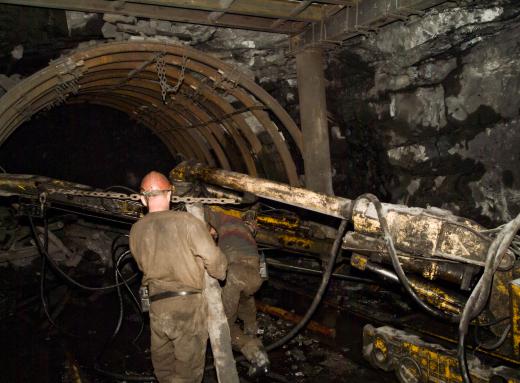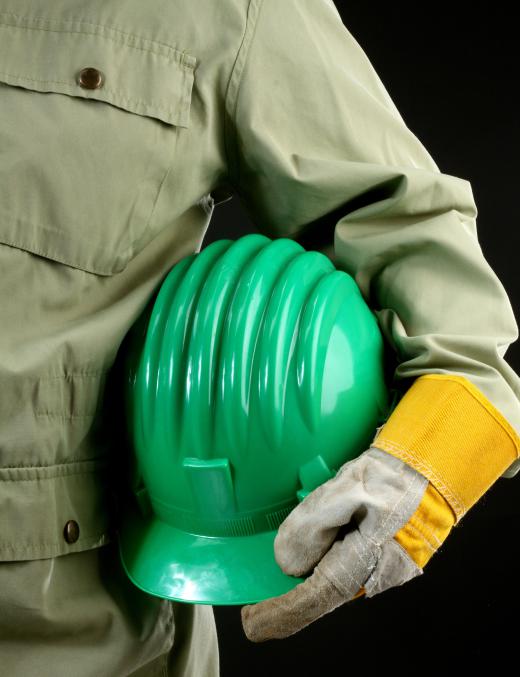A mining helmet is a type of headgear that is designed to protect people from falling objects and other hazards that are commonly found in mines. The first modern hard hats were created for use in mines, and were made from several layers of canvas held together by glue. Later, mining helmets were constructed out of materials such as aluminum, fiberglass, and injected thermoplastic. An internal suspension system helps to prevent these helmets from falling off and can also provide some extra shock resistance from falling objects. Some mining helmets come equipped with built-in light bulbs, while others have brackets that allow the attachment of a custom lamp.
Prior to about 1919, miners typically wore soft leather derby caps that provided limited protection. A layer of shellac was often used to coat these hats, and there was usually a short brim to provide some amount of protection to the eyes. The first dedicated mining helmet was developed in San Francisco, and was made out of canvass. To create these helmets, canvass was treated and then subjected to steam to make it more pliable. Layers of canvass and glue were then pressed into the shape of a helmet, creating what was commonly known as a "hard-boiled hat," and later shortened to just "hardhat."

A variety of materials have been used to create mining helmets throughout the years. Aluminum and fiberglass were two early materials that offered good protection, though injected thermoplastic also became popular. This type of mining helmet is created by injecting a specific type of polymer into a mold. The result, after it has cooled, is a helmet that is often less costly than aluminum or fiberglass while still being resilient.

One of the major components that can be found in a quality mining helmet is a suspension system. This is a set of straps and buckles that can fasten a mining helmet to a miner's head and prevent it from falling off while he works. These suspension system are generally designed to maintain a certain amount of empty space between the miner's head and the hard surface of the helmet. Thus, if the top of the helmet is hit by a falling rock or other object, the shock of the impact will be diverted away form the head. Suspension systems have gone through a number of changes throughout the years, and some can even be reversed.
In order to help miners see in the darkness, some mining helmets come equipped with lamps. Others have an accessory slot that allows a miner to attach a lamp of his choice, in addition to any number of other attachments. Face shields, breathing apparatuses, and even wireless video cameras can be attached to these mining helmets.
